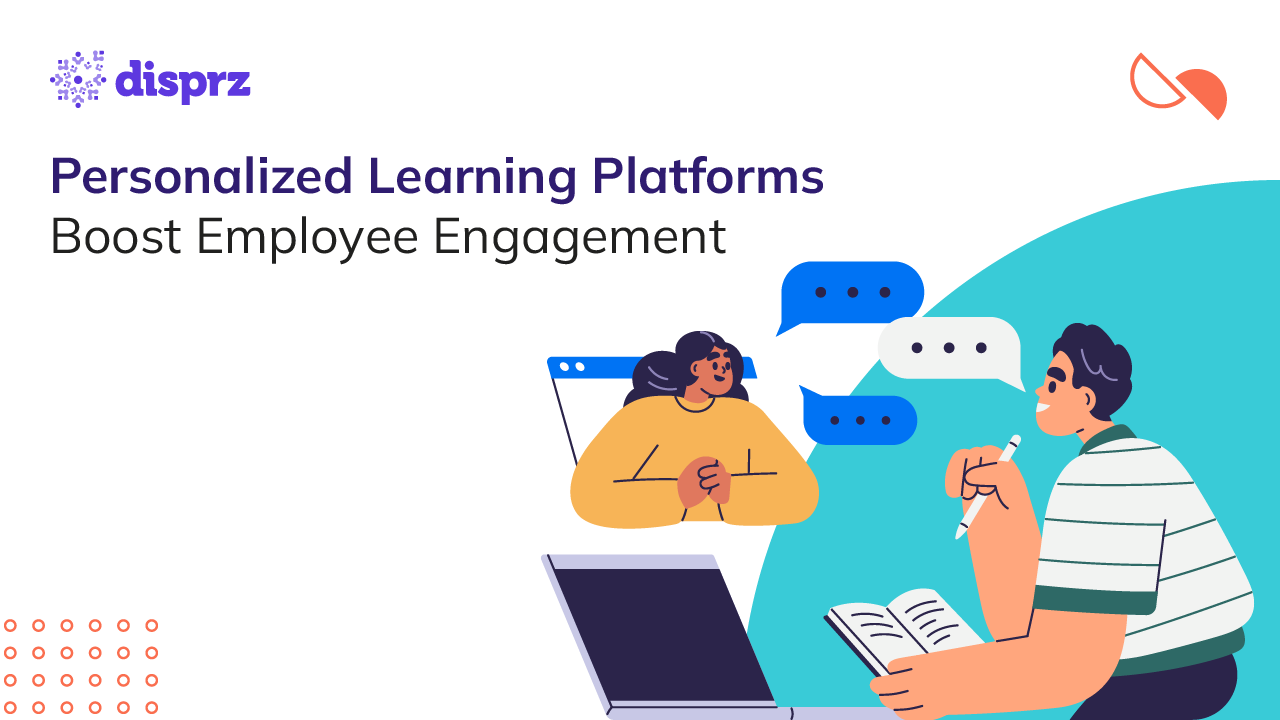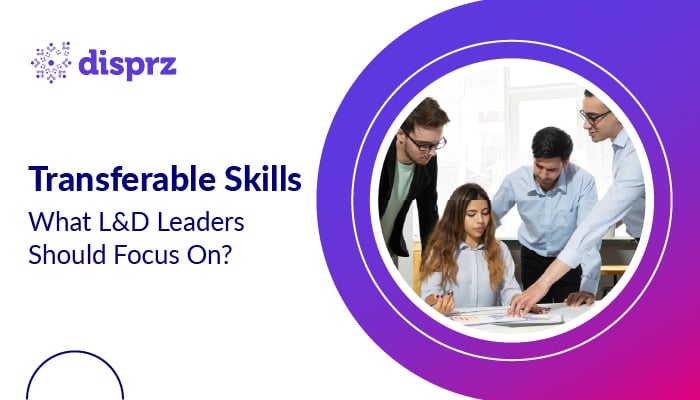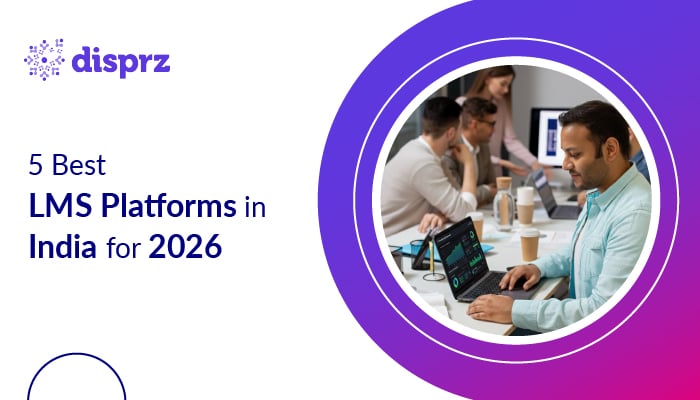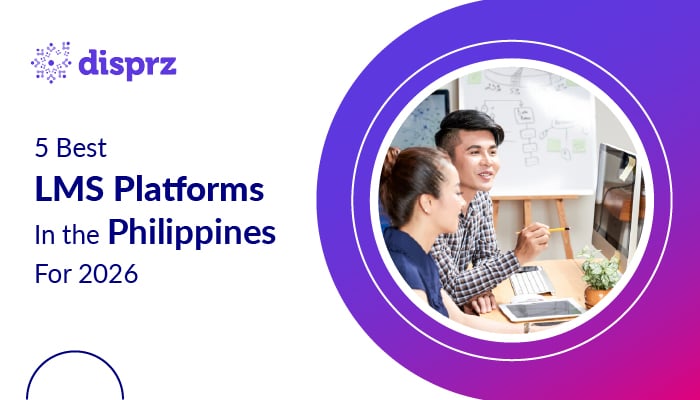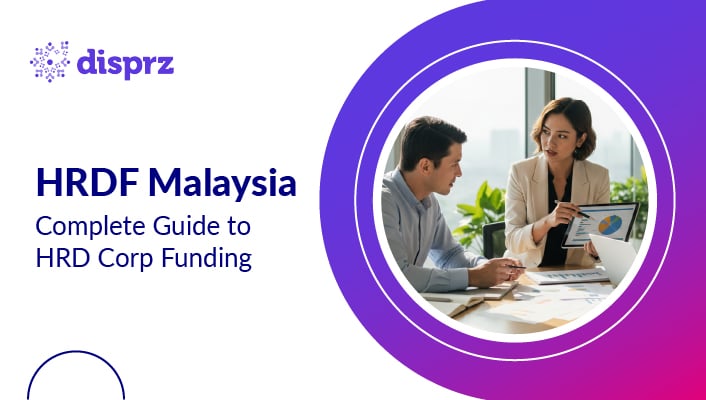Introduction to Personalized Learning Platforms
Training solutions, known as personalized learning platforms, use artificial intelligence (AI) and data analytics to create customized learning experiences tailored to individual needs and goals. These platforms dynamically adjust the content, pace, and feedback to precisely match and accommodate each learner's unique learning style, preferences, and abilities, ensuring an optimized and personalized experience.
What is a Personalized Learning Platform?
Personalized learning platforms are training solutions designed to offer customized learning experiences tailored to individual learners' needs, preferences, and goals. By leveraging data analytics, AI, adaptive learning, microlearning, and similar techniques, these platforms adjust content, pace, and feedback to match each learner's unique style and abilities.
Role of AI in Personalized Learning Platforms
Given the increasing adoption of AI technology, the future of AI-enabled personalized training offers a wide array of possibilities.
-
AI holds significant potential to improve personalized learning. Its capacity to collect, analyze, and learn from large datasets enables AI-powered training platforms to design highly personalized learning paths for each learner.
-
AI can monitor a learner's interaction with learning materials and evaluate their performance on various tasks and assessments. Using this data, AI can determine a learner's strengths, weaknesses, and learning preferences, subsequently tailoring the instructional content, pace, and methods to best fit the learner's needs.
-
Additionally, AI can offer real-time feedback, guiding learners through their learning journey. If a learner encounters difficulty with a particular concept, AI can immediately detect this and provide additional support or modify the learning materials to clarify the concept. This instant, personalized feedback significantly enhances a learner's comprehension and retention of knowledge.
How AI-Powered Personalized Learning Enhances Engagement
Personalized learning significantly boosts employee engagement by making learning experiences more relevant, empowering, and tailored to individual needs.
Here are some ways personalized learning enhances and promotes employee engagement:
Relevance and Customization
Personalized learning involves ensuring that content aligns with an employee's role, goals, and interests, which is crucial for effective training. Employees are more inclined to engage with material that directly aligns with their job responsibilities and career ambitions. By customizing learning paths, individuals can concentrate on what is most important to them, thereby making the learning experience more meaningful.
Autonomy and Empowerment
Personalized learning empowers employees by giving them control and ownership over their learning journey, allowing them to choose when, where, and how they learn. This self-directed approach fosters a proactive attitude towards skill development, resulting in higher engagement and commitment.
Adaptive learning techniques
Adaptive learning technologies are frequently utilized by personalized learning platforms to adjust content based on an individual's progress and performance. This adaptability ensures that employees are neither overwhelmed nor bored, as challenges are tailored to their skill levels. This approach maintains a sense of achievement and keeps learners engaged throughout the process.
Feedback and Recognition
Real-time feedback and recognition of achievements are facilitated by personalized learning. Regular feedback and acknowledgment of accomplishments enhance the learning experience by reinforcing positivity. Recognition, whether through badges, certificates, or other forms, motivates employees to remain committed to their learning journeys.
Flexibility and Accessibility
Personalized learning offers flexibility in accessing content and learning materials. By allowing employees to learn at their own pace and convenience, they are more inclined to actively participate in training programs. This flexibility caters to various learning preferences and work schedules, ultimately boosting engagement levels.
Targeted Skill Development
Pinpointing and resolving individual skill gaps effectively is a key feature of personalized learning. Employees value training that directly meets their skill development requirements. By offering targeted learning interventions, the process becomes more focused and efficient, appealing to employees dedicated to enhancing their capabilities.
Continuous Learning Culture
Encouraging a culture of continuous learning within the organization is a primary goal of personalized learning. Employees become more engaged when they view learning as a seamless and integral part of their professional development. This approach cultivates a mindset that prioritizes ongoing improvement, significantly enhancing overall engagement levels.
Data-Driven Insights
Gathering data on individual progress, preferences, strengths, and areas needing improvement is a core function of personalized learning platforms. Analyzing this data allows organizations to refine future learning experiences more precisely. Employees feel recognized and valued, reinforcing their belief in the organization's commitment to their growth and ultimately boosting engagement levels.
Key Features of the Best Personalized Learning Platforms
The remarkable outcomes were closely linked to four essential elements that consistently produced highly effective personalized learning solutions.
Learner Profiles
In personalized learning settings, the focus is on comprehending each learner thoroughly. Learner profiles delve into "each learner’s unique strengths, needs, motivations, progress, and goals" to offer optimal solutions. Adaptive systems create personalized learner profiles that contribute to each learner’s learning identity. These individualized profiles serve as platforms for trainers to connect with learners on a personal level, providing customized resources tailored to their needs.
Personalized Learning Paths
Through personalized learning paths, every learner navigates a unique journey that adjusts according to their learning progress, motivations, and goals. This approach promotes independent learning within a customized training experience. Each path is distinctly recognizable to both learners and trainers, providing deeper insights into progress and performance.
Competency-Based Progression
Competency-based progression entails continuously assessing each learner's advancement toward well-defined goals. This method ensures that learners master skills and competencies based on their demonstrated proficiency, rather than simply measuring the amount of time spent learning.
Flexible Learning Environment
In personalized learning approaches, the design of the learning environment is guided by learner needs. This approach revolves around learners achieving their goals at their own pace, based on their individual needs and interests. Adaptive learning platforms provide flexibility through mobile systems that offer customized resources and assessments. Trainers can then adapt their training methods to integrate flipped, blended, and mobile learning strategies to meet the needs of each learner effectively.
Emad Al Albani, Chief Human Resource Officer National Bank of Kuwait, shares how they provide personalized yet consistent learning experiences to their workforce. Discover his top tips to personalize and scale learning for your employees.
How to Implement Personalized Learning at the Workplace
Challenge 1
The effectiveness of AI-driven personalized learning is contingent upon the quality and quantity of data accessible to the AI system. Ensuring this data is representative, unbiased, and accurate is essential for making effective personalization decisions.
Solution
To address this challenge, it is critical to implement rigorous data collection and management practices. This includes diversifying data sources to ensure representation, regularly auditing and cleaning data to eliminate biases, and employing advanced algorithms to enhance data accuracy. Additionally, continuous monitoring and updating of the AI system can help maintain the relevance and integrity of the data, thereby optimizing the effectiveness of personalized learning solutions.
Challenge 2
Data privacy is a critical concern with AI systems collecting and analyzing extensive amounts of personal information. Ensuring learners' privacy is protected is essential.
Solution
To address this challenge, robust data protection measures and policies must be implemented. This includes encrypting data, limiting access to authorized personnel, and regularly updating security protocols. Additionally, learners should be clearly informed about how their data is being used and the steps taken to protect their privacy. Transparency and adherence to privacy regulations will help build trust and safeguard personal information.
Panel Discussion: Challenges in Scaling Digital L&D and Reskilling
Conclusion
Personalized learning platforms, powered by AI, provide tailored learning experiences that boost engagement by adapting to individual needs and goals. Disprz exemplifies this by using data analytics and AI to create customized learning paths, support continuous learning, and ensure data privacy, fostering a more engaged and skilled workforce.



